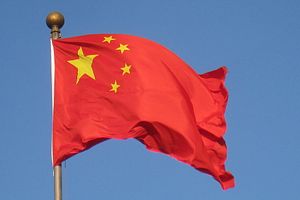There have been numerous discussions over why China announced its ADIZ at this moment. Some view it as a an institutional justification for China’s so-called righteous behaviors near its shore, while some regard it as an unnecessary challenge to the current regional order which has been dominated by the U.S.-Japan alliance. Despite the mainly negative and critical responses from its neighbors and particularly from Japan, China does not want to hide its confidence and even assertiveness on this matter. Beijing will probably establish ADIZ in the Yellow and South China Seas in the near future.
One of the main implications of China’s move is that it has been taking every chance to change its role from that of a humble and obedient follower of U.S.-dominated regional and international orders, to that of a new player in the current multiple rule-making processes. Aiming to be a rule-maker, China has become substantially involved in the multinational anti-piracy efforts in the Gulf of Aden and has also raised its voice in world climate dialogues. Actually, China has been sending out even stronger and clearer messages.
“If the rules are made by the international community through agreement and China is part of it, China will definitely abide by them, but if the rules are decided by one or several countries, China does not have the obligation to observe them,” Pang Sen, deputy head of Department of International Organizations and Conferences of the Chinese Foreign Ministry, told the press at the end of the APEC economic leaders’ meeting in Honolulu in November 2011. The East China Sea ADIZ is a carefully planned attempt for China to make the rules at its own doorstep, which are supported by China’s ever-growing economic and military power. If China succeeds or at least avoids starting an uncontrollable escalation of regional confrontation, Beijing will become more confident. More cases will follow as China goes further in setting up its own rules.
However, China is also running the risk of unifying regional powers– like the U.S., Japan, and probably South Korea– against it. Seoul has expressed significant concern and opposition to China’s recent ADIZ, which unilaterally included a submerged rock claimed by both China and South Korea (for more on this, see Ankit Panda’s article).
The U.S. does not maintain as strong of a U.S.-led alliance system in Southeast Asia as it does with its East Asian allies. As a result, China has been relatively successful in practicing a strategy of “divide and conquer” to manage the South China Sea disputes. The East China Sea dispute is different: the U.S. has repeatedly reaffirmed its obligation to protect Japan’s administrative, jurisdictive, and legislative rights to the disputed islands. By flying B-52 bombers into China’s ADIZ, the U.S. made its message crystal clear.
The risk is weighing upon all the directly or indirectly involved parties. For example, South Korean policymakers might feel like they are sitting on pins and needles, even though Seoul in only indirectly involved in this. However, neither Beijing nor Tokyo or Washington are seeking a military confrontation. Regional military conflict on the East China Sea will undoubtedly be a total disaster for not only East Asia but also the whole world, given East Asian countries’ important roles in the world economy. Hence, all parties, more or less, are playing a game of pride and “face.” Still, all parties are prepared for possible miscalculation and the resulting escalation.
The current situation is very serious but it is not yet a game of chicken. When U.S. Vice President Biden’s ignored some in Japan’s calls for a joint announcement on the ADIZ, it demonstrated that the U.S. is committed to leaving some maneuvering space for all parties in handling the current situation. Chinese ancient strategist Sun Tzu told us that “when you surround an army, leave an outlet free” (in Chinese, 围师必阙). This might provide a ray of hope for creating and maintaining peace on East China Sea: leaving an outlet would allow all involved parties a chance to deescalate. Beijing, Tokyo, and Washington should take care not to pass the point of no return.

































